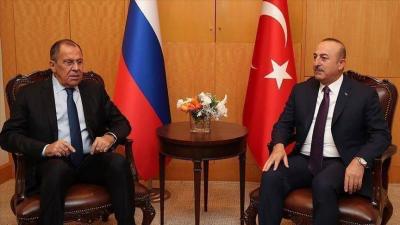On Wednesday, Russia announced that it had received Turkish assurances that the project to create a waterway to facilitate navigation on the Bosphorus would not lead to an increased presence of NATO naval forces in the Black Sea. Russian Foreign Minister Sergey Lavrov stated to reporters after talks with his Turkish counterpart Mevlüt Çavuşoğlu in Antalya, southern Turkey: "We are satisfied with our interactions with our Turkish colleagues."
Lavrov added: "During our discussions, we agreed that the plans to build the Istanbul Canal will not in any way affect the coordinates of foreign naval forces in the Black Sea." However, Çavuşoğlu did not confirm Turkey's commitment to not allow NATO to send additional warships to the Black Sea, merely stating that the Istanbul Canal would have no "direct impact" on the Montreux Convention. The Turkish minister noted that the convention has its own provisions regarding how it can be reviewed or revoked.
He continued: "There will be no changes to the Montreux Convention with the construction of the Istanbul Canal," adding that the new waterway would be subject to Turkish laws. The government of President Recep Tayyip Erdoğan has long defended the controversial planned Istanbul Canal, which is a waterway stretching 45 kilometers parallel to the Bosphorus Strait that connects the Black Sea to the Sea of Marmara and the Mediterranean Sea.
Russia fears that Turkey's approval of the new canal development plan could undermine its commitment to the Montreux Convention of 1936, which regulates navigation through the Bosporus and Dardanelles straits. In April, Russian President Vladimir Putin urged his Turkish counterpart Erdoğan to uphold this agreement.
Moscow is concerned about NATO warships entering the Black Sea, having faced a British warship last week that crossed disputed waters near the Crimean Peninsula, which Russia annexed from Ukraine in 2014. The Montreux Convention restricts the entry of warships into the Black Sea by imposing strict regulations on navigation in this area, but it ensures the free passage of civilian ships during both peacetime and wartime.




